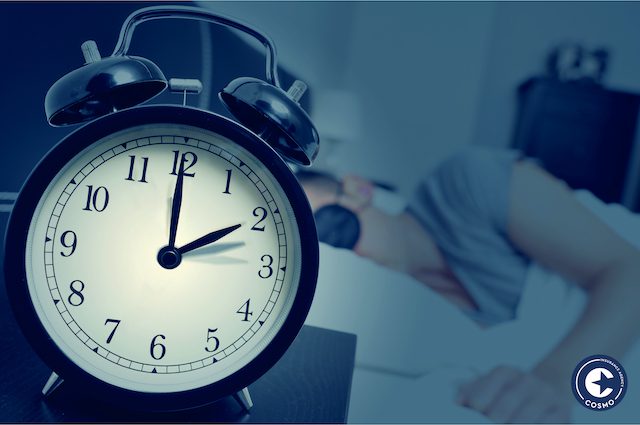Many people have a love-hate relationship with the time change from daylight savings. You love that you get an extra hour of sleep, but you hate the fact that it will now get dark at 5 p.m.
Let’s face it, most of us don’t get enough sleep even though we’re very aware of just how important it is for our physical, mental, and emotional health. According to Dr. Aneesa Das, a pulmonologist with the Ohio State University Wexner Medical Center, getting in the recommended seven to nine hours of sleep a night is a struggle for many adults, but it can be an even more significant challenge after changing the clocks due to daylight saving time.
“Daylight saving is probably a bigger issue than most people think,” Das said. “People are chronically sleep-deprived, and adjusting our sleep even further – like in the spring, we lose a whole hour – further augments this sleep deprivation.”
Research has shown that to be the case, Das continued, citing studies that show how people experience an 11% increase in depressive mood symptoms after the fall change.
While Das admits the “fall back” time change that will happen in the early hours of Sunday morning is a bit easier than the one in the spring – it comes with an extra hour of sleep – she recommends people still be aware of how the event might affect them or their family.
And that might be all the more important this year as the coronavirus pandemic has disrupted many people’s routines. Sleep affects the immune system as well as people’s response to vaccines, Das said.
Here are some tips to battle sleep issues after the clocks change:
Take a look at light exposure.
Our internal clocks reset every day through sunlight, so increase exposure to natural light. On the flip side, it’s best to limit artificial light, such as from a cellphone, in the dark hours leading up to bedtime.
Practice for daylight saving time changes early
“Staying awake a whole hour early and then sleeping in can be difficult, especially for children,” she said. She recommends that people try going to bed 20 minutes later (or earlier, depending on the time of year) a few days ahead of the change and then add 20 minutes every day until the clocks change for a more gradual transition.
Get regular exercise
Studies have shown how exercise helps people with jet lag or adjust to time changes, whether from Daylight Saving or traveling to different time zones.
Limit caffeine and alcohol consumption, especially in evenings
Both of these disrupt sleep, and while it might be tempting to use these as aids to combat daylight saving sleepiness, Das said they’ll leave you feeling even less rested.
Keep bedtime routines the same
Try to have as few interruptions as possible to one’s nighttime rituals (timing, bath or shower, reading, eating habits) as this will help alert your body that it’s time to fall sleep, Das said. This can be especially helpful for children, too.
Cosmo Insurance Agency is a full-service independent insurance agency based in Hackensack (Bergen County) and Lakewood (Ocean County), New Jersey that offers an all-encompassing range of insurance options for both individuals and businesses. Cosmo keeps its promise to assure an efficient and creative approach to the services we offer. Each of our clients experience a personalized and long-term relationship with us. Our New Jersey based team of health brokers guides our clients in helping them choose the most cost-effective options. By incorporating our knowledge of the insurance guidelines for healthcare, employee benefits, life insurance, self-insurance, dental, disability, and long term care insurance, we keep our clients up-to-date with affordable plans that cover all their specific insurance needs.



